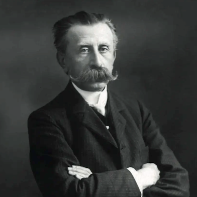Leaderboard
Popular Content
Showing content with the highest reputation on 01/24/2024 in all areas
-
Hey Peter, Actually that's the question I wanna ask myself! To be honest I always get depressed and disappointed when my piece posted on forum doesn't receive replies, no matter positive or negative. I know it's irrational thinking since doing reviews for me isn't a way of exchanging products but I sometimes just cannot get my mind out of it! Combining with my post partum syndrome after finishing a huge work, for example recently that six part fugue makes me feel depressed and wanna get out of YC altogether, to be honest. But thankfully after having my post partum syndrome away I usually get my love towards YC back. It's exhausting to listen to pieces attentively and review them and I sometimes wanna give up. But for me that's my responsiblity to review as the moderator here. Most importantly, reviewing for me is one of the best way to learn composing. Seeing a great piece would make you wonder how the member composes it and you will start to learn from it, for example for my own String Sextet movement I learn from @Jean Szulc and @Thatguy v2.0 and without their inspiration I would never be able to finish my own music. Even if you see some works that are more elementary, you could still learn much from it by reviewing since you have to give tips on how to improve it and this will in term guide you on your own composing. And it's so interesting and rewarding to share with others with our thoughts right? I love receiving criticism (and ofc praise!) since it helps me improve most. For me what motivates me most is when they give me a reaction in return, to be honest! My own priority of reviewing one's piece is 1) review someone who will give reactions to me and other members, since I LOVE reaction points. If I leave a review and I don't even receive a reaction point or reply of it, I will think maybe the member doesn't treasure my reviews and this will greatly diminish my desire to review their pieces! I hope people really treasure my reviews and for me that's the most rewarding thing. Second is of course the quality of the music, I would love great music! Third I will ALWAYS review members' music who review my own! But I always hate anyone who thinks themselves are genius and have a condescending tone, just like "I am vouchsafing my pieces here, come and listen to it and kneel before it", I always hate these guys. Unless you are Beethoven, I won't accept this kind of behaviour and will NEVER leave any review to these self-proclaimed geniuses, even though your works are great whatsoever. YC is a forum both for sharing and reviewing, but not a platform for your own showing off. I also don't like members who never reviews or replies to other members' music and comments, but less so than self-proclaimed geniuses. And hey @PeterthePapercomPoser you haven't left a reaction point (preferably like or haha haha; don't give me a confused, thinking or sad LoL!) to my six voice fugue. This will GREATLY diminish my motivation to review your music haha! Henry2 points
-
This is intended to be the second part of the second movement of my String Sextet in G flat major, after the part of Lamentoso. These two parts are very different from the more fleeing and transcendental first movement as I hope they capture the sadness of the time and what I feel, before leaping back to the world of the pentatonics later, which would make the pentatonics more grounded. Here is the first movement of the piece: Here is the first part of the second movement of the piece, the Lamentoso, which is actually finished after this fugue: Here are the scores, the original version and a version with my own (painful) analysis on it: Final Fugue from String Sextet movement 2.pdf(With Analysis) Final Fugue from String Sextet movement 2.pdf And here is the youtube video: The piece is dedicated to Mr. Johnson Ho. The finishing of the fugue is prompted by hearing his worsening health, so I really want him to stay healthy. The inspiration of the fugue first comes from my friend Mike @chopin and my mentor David (I am very honoured to name him my mentor even though we have never met in real life since his videos form the skeleton of my composing skill. Go watch his analysis videos NOW!) said that the middle fugato section from the first movement is the best part of the movement. I was shocked since I believed it was the worst of the movement! Then my bro Vince @Thatguy v2.0 (who also makes this perfect audio) inspired me to write a dense fugue for the second movement, and so I challenged myself to write a six part fugue, since I feel like it’s not fully realised in the first movement. This is he most difficult I have ever written, but finishing it I now consider it my most beautiful work composed up to date. It’s so emotionally deep, even weirdly I feel zero emotion during the composition process, only calculating the counterpoint haha. I am so satisfied with the result. The fugue comprises of three subjects, all from the 1st movement. The 1st and 2nd subjects are from the 1st movement fugue’s subject, while the 3rd subject is derived from the opening theme of the Sextet’s first movement. Here is the plan of the movement (time according to youtube video): First part (00:03): First subject enters in each instruments, inversion introduced at . All of sudden C minor enters (01:55) and I quote my subject of the C minor Clarinet Quintet 3rd movement fugue here to intensify the sadness. Also kind of replying to the relationship of G flat major and C major in the first movement, but while freedom is shared there, now sadness is shared. Second Part (02:12): Second subject enters and the section features a saturation of stretti. The C minor section (03:56) comes in at and it’s my favourite section of the whole fugue. It’s insanely tragically beautiful here. Third Part: Third subject enters (04:58), first and second subjects combine in the manner of the 1st movement fugato. The intensity is kind of lowered after that insanely tragic C minor section, maybe kind of accepting and reflecting upon it, and it’s less saturated with the subjects. However things starting to get intensified, first the third subject is treated as in Bach’s Chorale Preludes when it is cut up and divided to four phrases alongside the other two subjects (06:29). The only pentatonic entry (07:16) arrives to kind of relate itself to the first movement and hints what will come at the end, but at the meantime it’s defeated by disappointment and the fugue ends in a doubtful manner, which will lead to the chant section. Hopefully I would finish the whole movement as soon as possible! Hope you enjoy the fugue now! Henry1 point
-
As a composer and Young Composers Forum member, what do you think motivates people to review your music? The poll is multiple choice and the results are public. And also - if you review frequently ::ahem:: @Henry Ng Tsz Kiu ... Let us know what motivates you to review others works!1 point
-
hey @PeterthePapercomPoser I added a PDF. I was talking about the strings being those chords. What looks like it needs to be fixed in terms of voicing the chords and writing the piano better in terms of legibility for a pianist. Thanks!1 point
-
For me, it's a combination of many factors. I started being trained in violin (now my day job) when I was a toddler, around the same time I got to see Les Miserables on stage for the very first time. I struggled to practice, but I fell in love with the stage. All throughout my childhood, I gradually gained a greater and greater appreciation for both violin and theatre, but never reconciled one with the other. I began writing because it seemed like the natural progression of things, after all, [pick a great composer] began writing when they were only 5, so why not me? In first grade I wrote a song, but didn't write anything down on paper again until middle school; but I kept writing, just in my head, or simply improvising in the moment, in the meantime. When Noteflight came out I was going in to high school, and began using it to write. At the same time, my school announced that they would be doing Sweeney Todd- I'd never heard of it before, and it was very much love at first dissonant chord. I never did my homework in high school, instead choosing to practice or write in any free moment I had. In college, I elected to triple major (though I only ended up getting two of the three degrees) so I'd have an excuse to really focus on writing. After college, I didn't write for a long time due to trauma. After another trauma (and concussion), I started writing again, and haven't stopped since. I don't know. I'd like to be able to say that I write because it's my purpose in life, or because I have something I want to share, or better yet, so that I have a legacy that remains behind after my death. Those are certainly all true statements, but they're not why I write, nor descriptive of for whom I write. You see, I was kicked out of high school. Just before the verdict, I asked a teacher if I'd ever star in a musical. They said, and I'm paraphrasing here, "You don't have the looks, voice, or presence. No." So I resolved to write my own show, a la Lin Manuel Miranda, to star in myself. I very much write because I simply want to, fueled by spite. It's not noble, it's not poignant, and I really don't care. After being hit by a car and having my dream of being a symphonic musician snatched away in an instant, I really just have the one dream left- and the more people that tell me I can't do it, the more I want to prove them wrong. 🙂1 point
-
I have just finished the whole thing and it's such an intensive masterpiece. All those sudden modulation as in a late romantic piece and the quoation of that Eroica 2nd movement is again so freakingly beautiful. There's the clash of minor 2nd in b.436! Just like my subject entries haha. It's so Wagnerian when the emotion just goes on and on without stopping. I think he really uses great orchestral technique in this with all those mature doublings and sound effects! The use of leitmotifs are great as well even though I don't like technique itself personally since it introduces way too many motives sometimes. Thanks so much for your recommendation Luis! I thoroughly enjoy the piece and will definitely relisten to it. Henry1 point
-
Yes, one hopes. We have this "cost of living" crisis in the UK, not helped by almost a million migrants last year which local Councils have to house along with our homeless. So financial grants and cheap hall rentals are out in current times. It's an amateur outfit as is the other I mentioned but among its members were a few retired professionals and those displaced by orchestras closing down. We have a county orchestra for which one has to be an extremely good amateur - that counts me out as I'm about Grade 6 (Associated Boards) but they've played my stuff in the past...not the modern things I should add. In a way it thwarts development ! as I habitually think of a 5 - 6 minute piece that's more likely to be considered than a Brucknerian symphony. What's proved useful is talking to the more accomplished players about instrumental techniques; get a few tips. Edit: I don't want to go off track but todays news declared that over 250 "music venues" in the UK had to close last year. Not good.1 point
-
I know this is a pretty odd question and just the fact of thinking what music to put in your own funeral is weird, but I wanted to ask this question. I would bring this five pieces in this order: - Chopin prelude in C minor Quite a dramatic way to start, but is a sad piece and full of beautiful contrasts - Rachmaninov etude tableaux in g minor The beautiful introspective melody of this etude with The barcarolle-like accompaniment makes it very emotional. This is specially beautiful when the high chords are introduced -Rachmaninov moment musicaux in b minor just by listening to the first 20 seconds of this piece you will understand why I put it here, it starts quite solemn, but then, the contrasting phrase makes you want to cry -Bach prelude no 4 from book one of the well tempered clavier Obviously, played in an unorthodox way with a piano instead of a harpsichord and with some pedal, this prelude can be beautiful and suitable for a funeral -Rachmaninov prelude in B minor Such a beautiful nostalgic piece, full of emotional harmonies and a powerful climax in the middle section, followed by a delicate cadenza and a “reprise” of the stillness of the beginning, and ending between major and minor PS: the fact that I am thinking about what music to put in my funeral doesn’t mean that I am dying, it is just a mere consequence of my boredom1 point
-
These immediately come to mind: This is my favourite string quartet of all time. The third movement is in the form of a funeral march, and it is followed by a cheerful finale (to me, it shouldn't all be about mourning my death, but also celebrating my life and an anticipating the joy of life beyond the grave!) This is a really beautiful hymn that also transitions from gloom to joy. I would love this to be included as well.1 point
-
Hey @Quinn St. Mark, I agree with Peter. I don't think anyone can claim a copyright for a chord progession since it should be some public knowledge but not privately owned by anyone. Also the creativity of a whole piece involves not only harmony, but many parts like melody, rhythm etc., and if other parts are not too similar with the original song I am sure your piece should be counted as an original piece as well. I sometimes quote passages from previously composers both consciously and unconsciously (with the main victim being Beethoven since he's my idol lol), but I think they are all fair use since they are integrated into my piece, rather than just copying. Henry1 point
-
I have just watched Bon Joon Ho's Mother (2006) and it's amazing: The music begins at 3:05 but the whole scene is fxxxingly beautiful! I can never appreciate film music alone without the film itself since the music is just an integral part of the film. Just like Stravinsky's Rite I always have to have the dances in my mind. Henry1 point
-
Hello @tj2024 and welcome to the forum! I have never heard of Václav Nelhýbel and his Symphonic Movement. I guess the popular concert band/wind ensemble literature changes with every generation. To me the beginning sounded kind of like Frank Ticheli which is a wind band composer I've played back when I was in one. It reminded me of Fortress and Vesuvius - some popular ones I played. Your piece certainly sounds fun to play to say the least! I hope you get the chance to have this performed by an actual band and hopefully also get a good recording! Your writing sounds very competent and mature for a 17 year old! I was going to say that one critique I have of your piece is that it seems to lack some thematic unity. But then I hit the play button once again after hearing the ending and noticed that you were using the same exact motivic material for both the start and the finish. Reusing your melodic material at different levels of intensity/tempi is definitely a good way to create thematic unity while also giving a sense of novelty - two forces in music that I think every composer must constantly work to keep in balance. The contrasting section is nice as well with constant swelling giving a sort of menacing feeling with the accelerando. The part following that where the "more evil" chase starts up sounds like something out of Star Wars: Attack of the Clones where Anakin jumps out of the window holding onto the assassin droid LoL. Part of the chase section sounds like a stately march instead of a chase which was surprising to me. Overall though - a very enjoyable piece and I'm sure with much that I've missed that I would appreciate more upon even more repeated listenings! Thanks for sharing! Peter1 point
-
I think using the harmonic underpinning of a pre-existing composition as an under-drawing of a new composition is a common technique in variation technique - you can change basically all the other features of the music while keeping the harmony the same and make it totally unrecognizable from the original. Also - as far as I know, you can't copyright a chord progression itself. I could be wrong though - these things have been repeatedly contested in court. Interesting question! Peter1 point
-
G'day @Aw Ke Shen, Thanks so much for sharing this waltz! It was a very interesting piece. I agree with Luis that there may have been a few too many repeats, but you certainly challenged my expectations as a listener with some of those left hand rhythms towards the end!1 point
-
Here is my little variation^^ Brahms lullaby work Ldb.mp3 Brahms lullaby work Ldb.pdf1 point
-
G'day @PeterthePapercomPoser, My favourite waltz overall has got to be "Valse Mélancolique" by Emīls Dārziņš. It's apparently his only surviving work too, making it all the more special.1 point
-
That's sad! I do hope your local orchestra starts up again! That must have been a great asset to have an orchestra ready to perform your new works. I have sometimes dreamt of holding concerts of only Young Composers Forum works from the past 1 - 2 years. I bet people would be amazed that new music can still be so entertaining and accessable!1 point
-
Hi @Jqh73o, This topic is quite interesting. For me I would make the same choice as Schubert did to play Beethoven's op.131 quartet: But I will also have the 3rd movement of the op.131 quartet played: I may also include the 4th movement of my 2nd Piano Sonata, since @Thatguy v2.0 pointed out that the movement is quite similar to a funeral march and I think it will be a good choice to feature my own music in my own funeral: I would also love to have my String Sextet (now only the 1st movement completed) to be the ending piece of the funeral music, hoping it will signify that my spirit is combined with the whole state of heavenly morality: Henry1 point
-
Top 3 Overrated: 1. Johann Sebastian Bach I might be having my funeral in the next few days for this but i don't find this dude interesting at all; his music, for me, is overly-complex and too dense. 2. Ludwig van Beethoven Beethoven is a composer i actively listen to so i don't dislike him at all, but i find some of his music to be a bit too heavy and dark expect for a few light pieces here there of course. I prefer some of his earlier sonatas for this very reason. 3. Arnold Schoenberg Atonal "music" is not music to my ears (sorry if i offended anybody with that.) Top 3 underrated: 1. Franz Liszt Liszt one of the few people who had really mastered the piano, hence he is one of my favorite composers. I think he is quite underrated in comparison to other romantic composers like Beethoven and Frederic Chopin. My favorite works by him are the Hungarian Rhapsodies, the Paganini etudes and the Transcendental etudes (Some people complain about these etudes being too noisy but in my eyes they are masterpieces, every single one of them). 2. Charles-Valentin Alkan Even more underrated than Franz Liszt is the infamous Alkan with his nearly-impossible to play pieces, in fact i was quite surprised when i first heard his music it was like mindblowing. 3. Antonio Salieri Popular as the murderer of Mozart in the movie Amadeus (great movie!) there are few that actually listen to his music today, which is kind of sad since Salieri's music sounds quite nice and elegant, especially his symphonies and operas (not a big fan of them but yeah) EDIT years later: I strongly disagree with what I wrote here now. Bach has become one of my favorites and my opinion on "atonal" music is far more permissive than before. Also, the writing is pretty wonky, though I am not sure that has changed over the years.1 point


.thumb.png.8b5b433a341551e913a34392660bc95b.png)


